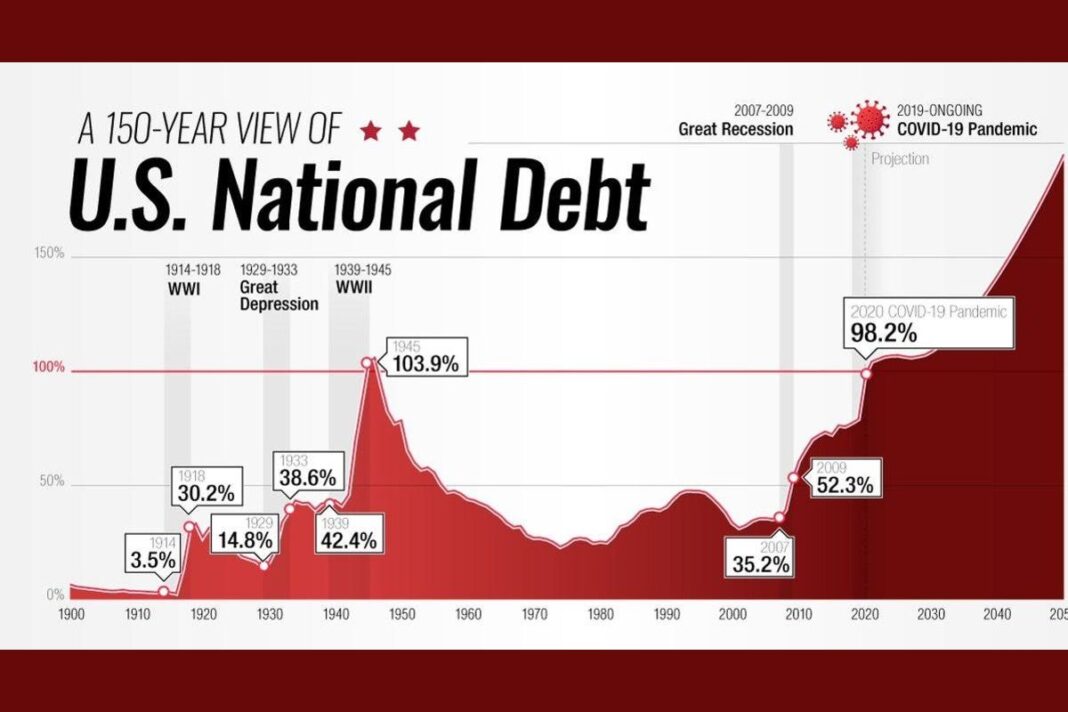A concern of conservative Republicans is the bill adding to both the national debt and deficit.
WASHINGTON—House Republicans appear stuck on July 2 when it comes to advancing President Donald Trump’s One Big Beautiful Bill Act.
As of Wednesday evening, a vote on Rep. Virginia Foxx’s (R-N.C.) amendment to the bill had been left open on the floor for over three and a half hours, which often happens when leadership is trying to whip up support for legislation behind the scenes.
This comes one day after the Senate passed its version of the bill in a vote that ended in a tie. Vice President JD Vance broke the tie by voting in favor.
Now, House Republicans are working overtime to bring their ideologically-divided caucus—split between moderates and conservatives who often want opposing outcomes—on board with the mammoth bill. With Republicans controlling 220 seats to Democrats’ 212, House Speaker Mike Johnson (R-La.) can spare no more than three defections.
Earlier on Wednesday, both factions met at the White House to discuss the bill with Trump, who is encouraging its passage by July 4.
While that outcome seems far from guaranteed, House Ways and Means Committee Chairman Jason Smith (R-Mo.) told reporters he was feeling confident a deal could be reached.
“We have a real opportunity to deliver one of the most impactful pieces of legislation, and we’re gonna do it,” Smith said.
Here are some of the biggest unresolved divisions in the bill.
| Pricetag | Cut Provisions |
| Medicaid | Other Issues |
Pricetag
Many conservatives have expressed concerns about the bill’s impact on the national debt as well as the deficit.
“The changes the Senate made to the House passed Beautiful Bill, including unacceptable increases to the national debt and the deficit, are going to make passage in the House difficult,” Rep. Marlin Stutzman (R-Ind.) wrote on X.
The conservative Freedom Caucus said in an X post on June 30: “The Senate’s version adds $651 billion to the deficit—and that’s before interest costs, which nearly double the total. That’s not fiscal responsibility. It’s not what we agreed to.”
Rep. Ralph Norman (R-S.C.), a caucus member, told The Epoch Times on July 1 that he would vote against the legislation. Norman and other fiscal hawks have called for at least $2 trillion in spending cuts, while the bill delivers $1.5 trillion in cuts.
In a document circulated by the Freedom Caucus, first reported by Punchbowl News, it states that the Senate added $400 billion to the bill passed by the House.
There are also concerns about the Congressional Budget Office’s (CBO) prediction of a $3.2 trillion deficit increase under the bill.
Rep. Jeff Van Drew (R-N.J.) took a different perspective.
“People are going to have more money to spend, the economy is going to do well, and people are going to be happy,” Van Drew told reporters.
Johnson and Trump have argued that the bill will reduce the deficit by kindling economic growth, and have criticized the CBO numbers for relying on a lower growth rate.







